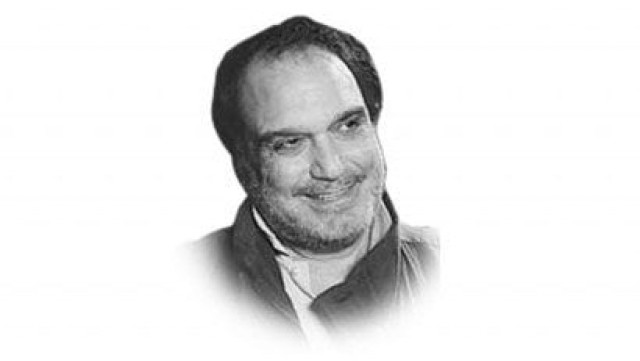Pakistan’s most ‘reflective’ leader

Field Marshal Mohammad Ayub Khan: A Selection of Talks and Interviews, 1964-1967
With the publication of the book Field Marshal Mohammad Ayub Khan: A Selection of Talks and Interviews, 1964-1967 (OUP 2010), General Ayub becomes the most “reflective” ruler of Pakistan. His earlier diaries have already confirmed his pursuit of wisdom. It would be wrong to dismiss his Periclean project. No one else has even made the effort.
In general, Muslim military men are not intellectually inclined. That divests them of the virtue of vision. They become “fixers” who handle “strategy” only to the detriment of the nation. Civilian leaders of Pakistan rule in the midst of enveloping chaos – both political and ideological – and hardly have time to reflect and write. Most don’t write because reflection would force them to invent a vision which would militate against expediency.
After becoming president in 1966, Ayub got his principal secretary, NA Faruqui, and his information secretary, Altaf Gauhar, to tape-record his views. Now his son Gohar Ayub Khan – “one or two of my children are utter failures” (p108) - has provided these recordings to the OUP and the result is the latest book.
Ayub thought the Rawalpindi conspiracy case was caused by a crisis of civilian leadership and because the war in Kashmir “was fought surreptitiously” (p71). He thought Liaquat Ali Khan was courageous but was manipulated by Chaudhry Muhammad Ali. Suhrawardi was “an opportunist of the highest order” and lacked character, associated with ghundas, and wanted a united Bengal (p94). Ghulam Muhammad, the governor-general, was a “disabled man” who abused all politicians except, understandably, Ayub. Chaudhry Muhammad Ali was a “little deceptive” and gave the impression of being rather holy (p94). Prime Minister Bogra was a fiddler (with his pen mostly) and thought he could curtail the powers of the governor-general. Ayub was offended by Maulvi Tamizuddin’s campaign against Ghulam Muhammad.
Fatima Jinnah was full of “ambition and hunger for power” (p176). She did not have the temperament or the patience for handling politicians. “They would have, first of all, torn each other’s hair and beards out and, thereafter, some sort of turmoil would have taken place in the country.” (p176)
Ayub Khan’s “strategic” side was short-circuited by his static view of India which today continues to render all generals tentative and tactical.
Look at this sentence: “Our very existence, from the very word go, has been threatened by India. Indian foreign policy amounts to, in spite of all our efforts in foreign affairs, the isolation and weakening of Pakistan” (p216). What next? Look for a patron: “That really is the crux of the problem…to find a friend, which is obviously a country stronger than India, which shall stand by Pakistan” (p217).
Then comes Ayub’s inability to adjust. This is what he says about efforts to coexist with India: “If we were to succeed (to achieve coexistence), it would be more to the advantage of India than to Pakistan” (p217). This is the intellectual ambush that has hampered Pakistan’s political and economic evolution as a state, even after nuclearisation. We can have billions of rupees worth of military exercises against India in South Punjab while the Taliban are stabbing us in the back.
But Ayub had the serendipity to arrive at unorthodox wisdom because he devoted more time to thinking and was reflective by nature. He says: “I think Pakistan is important for two reasons. One is, if it could be of assistance to India. Pakistan does lie in the path of strategy in many ways. The subcontinent has always been invaded through the passes in the north-west and so on. If the idea is to protect the subcontinent, the first place to protect is Pakistan” (p241). Given the state of the Pakistani mind in the 1960s, there is much that is original in Ayub’s thinking.
















COMMENTS
Comments are moderated and generally will be posted if they are on-topic and not abusive.
For more information, please see our Comments FAQ